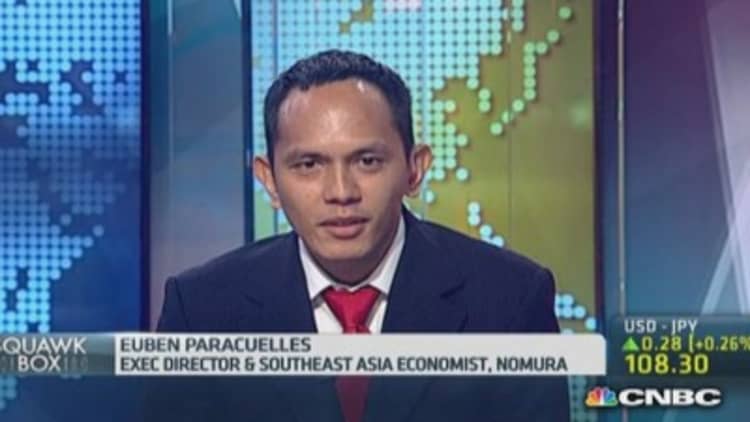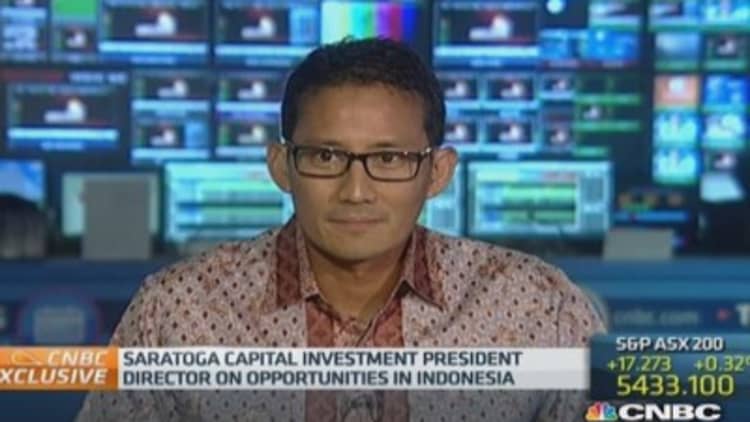A government move to reduce crucial fuel price subsidies could hit Southeast Asia's largest economy hard, analysts warn.
Indonesia, which enjoys some of the world's lowest petrol prices thanks to $20 billion in annual fuel subsidies, could see prices rise between 13 U.S. cents and 25 cents —an increase of up to 46 percent—in November, according to analyst estimates.
As a result, annual inflation is expected to spike high above the central bank's range of 3.5 to 5.5 percent.
Read MoreJoko Widodo's principles could derail his reforms
United Overseas Banking (UOB) is predicting fuel prices to increase 46 percent by November, which will bring the average inflation rate to 6.5 percent this year. Meanwhile, Barclays is expecting a 23 percent rise in November, followed by another increase in 2015, resulting in a 6.2 percent inflation rate for 2014.
"Higher fuel prices diminish disposable household income and hence discretionary spending. This will subtract from a largely consumption-driven economy," said Vishnu Varathan, senior economist at Mizuho Bank.

The Indonesian government last increased subsidized fuel prices in June 2013 by 44 percent, the first in five years, sending inflation up to 8-plus percent. The price hike also sparked clashes in the capital city of Jakarta, where protesters fought with police.
Read MoreGet ready for another Asia flashpoint
Global investors are expected to cheer the decision. The fuel subsidy has contributed to the country's ballooning current account deficit, expected to exceed 3 percent of gross-domestic product (GDP) this year. Fuel subsidies account for nearly a fifth of the government's budget.
"This is good news insofar that fuel subsidy burden has been the main fiscal bugbear, extracting a toll on investor confidence," Varathan added.
Central bank debate
In an attempt to stop prices spiraling out of control once the subsidies have been cut, analysts expect Bank Indonesia (BI) to raise the main interest rate from its current 7.5 percent -- the first time in a year.
"Depending on the timing of these fuel price adjustments, we are now penciling in two 25 basis-point hikes in 2015 – first in Q1 after the November 2014 fuel price adjustment, and then once more after the fuel price hike in Q3 of 2015," said economists at Barclays.
Read MoreIndonesia's new leader may focus on cutting red-tape

However, Citi believes that a rate hike may not be a first resort for the central bank.
"In light of weakening credit growth and domestic demand, we are more inclined to believe that interest rate hikes will probably not be high up on BI's priority list of responses," analysts said in a report.
Timing is key
President-elect Joko Widodo's need to address fiscal imbalances may be urgent for the economy, but economists say timing could make all the difference.
Read MoreIndonesia -E-commerce's new frontier market?
Euben Paracuelles, Southeast Asia economist at Nomura, told CNBC, that it would be more prudent for Widodo to take action next year.
"This is a political decision; it's very hard for me to see him have the incentive to do it so early into his term. Besides, as we've seen in the latest political developments, things are looking less and less supportive. So, until he gets more parliamentary support, I think fuel price hikes will be delayed," he added, referring to news of opposition parties winning key posts in parliament last week.

